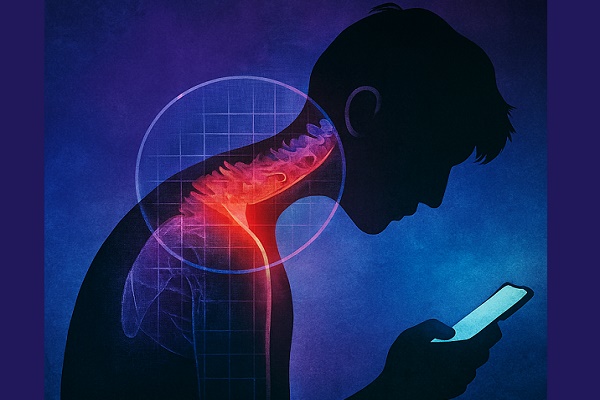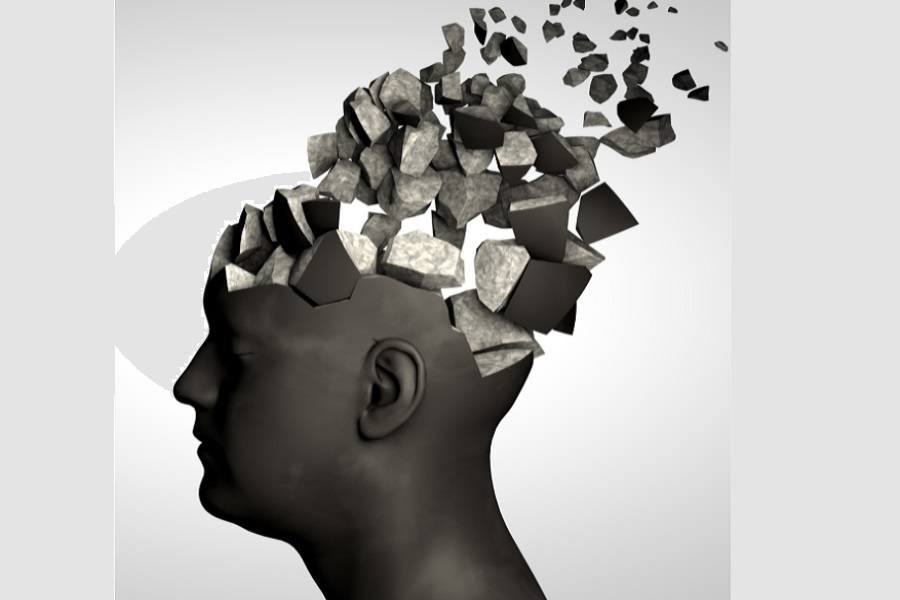Gut- Brain Connection: Why Your Mood Depends on What You Eat

In recent years, scientists have uncovered one of the most fascinating discoveries in human health—the intimate relationship between the gut and the brain. Once thought to function independently, these two powerful systems are now known to communicate constantly, influencing everything from stress levels and immunity to mood and emotional well-being. This communication network is known as the gut–brain axis, and it's reshaping how we understand mental health.
Today, it’s clearer than ever: what you eat directly affects how you feel.
1. Your Gut: More Than Just Digestion
Your gut is home to trillions of microorganisms—bacteria, fungi, and other microbes—collectively known as the gut microbiome. These tiny organisms play vital roles in digestion, nutrient absorption, and immune function. But their influence goes far beyond the stomach.
Surprisingly, the gut is often called the “second brain” because it contains over 100 million nerve cells, forming the enteric nervous system. This powerful network communicates with the brain through neural pathways, hormones, and chemical signals.
One of the most important pathways connecting the two is the vagus nerve, which acts like a communication highway.
2. Gut Bacteria and Your Mood: The Hidden Chemical Factory
The gut microbiome produces many chemicals that your brain uses to regulate mood. In fact:
Around 90% of serotonin (the “feel-good hormone”) is produced in the gut.
Dopamine, responsible for motivation and pleasure, is also influenced by gut bacteria.
Certain microbes help reduce inflammation—an important factor in preventing anxiety and depression.
When your gut flora is balanced, your brain receives the right signals to stay calm, focused, and emotionally stable. But when the balance shifts, problems begin.
3. How an Unhealthy Gut Impacts Mental Health
Poor diet, antibiotics, lack of sleep, stress, and infections can disrupt gut bacteria, causing gut dysbiosis. When this happens, the body enters a state of imbalance that triggers inflammation and negatively affects the brain.
Common signs of gut imbalance include:
Mood swings
Anxiety
Irritability
Brain fog
Low energy
Digestive issues
This explains why many people notice changes in mood or mental clarity after meals—your brain responds to what happens in your gut.
4. Foods That Boost the Gut–Brain Connection
Your diet is the most powerful tool you have to support a healthy gut and a healthy mind. Eating the right foods helps beneficial gut bacteria grow, improves digestion, and enhances mood-regulating chemicals.
Probiotic-Rich Foods (Good Bacteria Boosters):
Yogurt
Kefir
Kimchi
Sauerkraut
Miso
Kombucha
These foods introduce beneficial bacteria to your gut.
Prebiotic Foods (Feed the Good Bacteria):
Bananas
Garlic
Onions
Oats
Apples
Asparagus
These act like fertilizer for healthy gut microbes.
Omega-3 Foods (Brain Nourishers):
Salmon
Walnuts
Flaxseeds
Chia seeds
Omega-3 fatty acids support brain health and reduce inflammation.
Antioxidant-Rich Foods (Mood Stabilizers):
Berries
Dark chocolate
Spinach
Green tea
These help fight oxidative stress, which affects mood.
5. Foods That Harm the Gut—and Your Mood
Certain foods disrupt gut bacteria and trigger inflammation, leading to mood instability.
Avoid or reduce:
Highly processed foods
Excess sugar
Artificial sweeteners
Deep-fried foods
Alcohol
Refined carbs
These can worsen anxiety, fatigue, and emotional imbalance.
6. The Mind–Gut Feedback Loop
Stress affects the gut—and the gut affects stress. When you feel anxious, your gut reacts (butterflies, stomach pain). When your gut is unhealthy, it sends distress signals to your brain, increasing anxiety.
This creates a loop that can be improved with:
Meditation
Deep breathing
Yoga
Adequate sleep
Regular movement
Mental wellness practices support gut health just as much as food.
In recent years, scientists have uncovered one of the most fascinating discoveries in human health—the intimate relationship between the gut and the brain. Once thought to function independently, these two powerful systems are now known to communicate constantly, influencing everything from stress levels and immunity to mood and emotional well-being. This communication network is known as the gut–brain axis, and it's reshaping how we understand mental health.
Today, it’s clearer than ever: what you eat directly affects how you feel.
???? 1. Your Gut: More Than Just Digestion
Your gut is home to trillions of microorganisms—bacteria, fungi, and other microbes—collectively known as the gut microbiome. These tiny organisms play vital roles in digestion, nutrient absorption, and immune function. But their influence goes far beyond the stomach.
Surprisingly, the gut is often called the “second brain” because it contains over 100 million nerve cells, forming the enteric nervous system. This powerful network communicates with the brain through neural pathways, hormones, and chemical signals.
One of the most important pathways connecting the two is the vagus nerve, which acts like a communication highway.
???? 2. Gut Bacteria and Your Mood: The Hidden Chemical Factory
The gut microbiome produces many chemicals that your brain uses to regulate mood. In fact:
Around 90% of serotonin (the “feel-good hormone”) is produced in the gut.
Dopamine, responsible for motivation and pleasure, is also influenced by gut bacteria.
Certain microbes help reduce inflammation—an important factor in preventing anxiety and depression.
When your gut flora is balanced, your brain receives the right signals to stay calm, focused, and emotionally stable. But when the balance shifts, problems begin.
???? 3. How an Unhealthy Gut Impacts Mental Health
Poor diet, antibiotics, lack of sleep, stress, and infections can disrupt gut bacteria, causing gut dysbiosis. When this happens, the body enters a state of imbalance that triggers inflammation and negatively affects the brain.
Common signs of gut imbalance include:
Mood swings
Anxiety
Irritability
Brain fog
Low energy
Digestive issues
This explains why many people notice changes in mood or mental clarity after meals—your brain responds to what happens in your gut.
???? 4. Foods That Boost the Gut–Brain Connection
Your diet is the most powerful tool you have to support a healthy gut and a healthy mind. Eating the right foods helps beneficial gut bacteria grow, improves digestion, and enhances mood-regulating chemicals.
???? Probiotic-Rich Foods (Good Bacteria Boosters):
Yogurt
Kefir
Kimchi
Sauerkraut
Miso
Kombucha
These foods introduce beneficial bacteria to your gut.
???? Prebiotic Foods (Feed the Good Bacteria):
Bananas
Garlic
Onions
Oats
Apples
Asparagus
These act like fertilizer for healthy gut microbes.
???? Omega-3 Foods (Brain Nourishers):
Salmon
Walnuts
Flaxseeds
Chia seeds
Omega-3 fatty acids support brain health and reduce inflammation.
???? Antioxidant-Rich Foods (Mood Stabilizers):
Berries
Dark chocolate
Spinach
Green tea
These help fight oxidative stress, which affects mood.
?? 5. Foods That Harm the Gut—and Your Mood
Certain foods disrupt gut bacteria and trigger inflammation, leading to mood instability.
Avoid or reduce:
Highly processed foods
Excess sugar
Artificial sweeteners
Deep-fried foods
Alcohol
Refined carbs
These can worsen anxiety, fatigue, and emotional imbalance.
???? 6. The Mind–Gut Feedback Loop
Stress affects the gut—and the gut affects stress. When you feel anxious, your gut reacts (butterflies, stomach pain). When your gut is unhealthy, it sends distress signals to your brain, increasing anxiety.
This creates a loop that can be improved with:
Meditation
Deep breathing
Yoga
Adequate sleep
Regular movement
Mental wellness practices support gut health just as much as food.
Conclusion
The gut–brain connection is one of the most powerful relationships in the human body. It influences mood, memory, energy, and emotional resilience. By making mindful food choices, supporting your gut bacteria, and reducing stress, you can create a balanced internal environment that nurtures both your physical and mental health.
In simple terms:
Feed your gut well, and your mind will thank you.
The gut–brain connection is one of the most powerful relationships in the human body. It influences mood, memory, energy, and emotional resilience. By making mindful food choices, supporting your gut bacteria, and reducing stress, you can create a balanced internal environment that nurtures both your physical and mental health.
In simple terms:
Feed your gut well, and your mind will thank you.
























